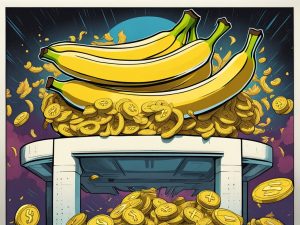Why Venezuela is Increasing the Use of Cryptocurrencies for Oil and Fuel Exports
Venezuela is turning to cryptocurrencies for crude oil and fuel exports as a strategic response to recent US sanctions on oil. The state-owned oil company, PDVSA, aims to bypass these restrictions and manage transaction risks associated with traditional currency.
General Information on Oil Sanctions and Venezuela’s Transition to Cryptocurrencies
– The US Treasury set a deadline of May 31 for PDVSA customers and suppliers to close transactions under a general license, which will not be renewed due to the lack of electoral reforms in Venezuela.
– Companies will need individual US authorizations for oil transactions after the deadline.
– PDVSA started using USDT (Tether) in 2023 but accelerated the adoption of digital currencies due to new sanctions.
– Digital currencies may become the preferred payment method in future agreements.
– The initiative aims to avoid sanctions and mitigate broader financial risks.
The Global Context and Economic Implications
– The traditional reliance on the US dollar in the global oil market is shifting due to economic challenges in 2023.
– Interest in alternative payment methods like cryptocurrencies is growing.
– Venezuela’s transition to cryptocurrency-based transactions reflects a global trend of nations exploring new economic strategies in response to geopolitical pressures.
– Cryptocurrencies offer a mechanism to continue vital commercial activities without relying on traditional banking systems.
– Adoption of cryptocurrencies in oil sales offers advantages like improved transaction speed, reduced dependence on foreign banks, financial privacy, and security.
– Challenges include cryptocurrency volatility, technological infrastructure requirements, and regulatory adjustments.
The Future Outlook
– Venezuela’s shift to cryptocurrencies for oil sales could reshape international relations and economic sanctions by reducing the dominance of the US dollar in transactions.
– This could prompt a reevaluation of economic tools like sanctions.
– The success or failure of Venezuela’s cryptocurrency initiative will impact not only its economy but also global economic policies and the role of cryptocurrencies in international trade.
– The move marks a significant transformation at the intersection of technology, finance, and geopolitics.
– Other nations observing Venezuela’s experience may lead to a broader acceptance and use of digital currencies in international trade.





 By
By

 By
By

 By
By
 By
By